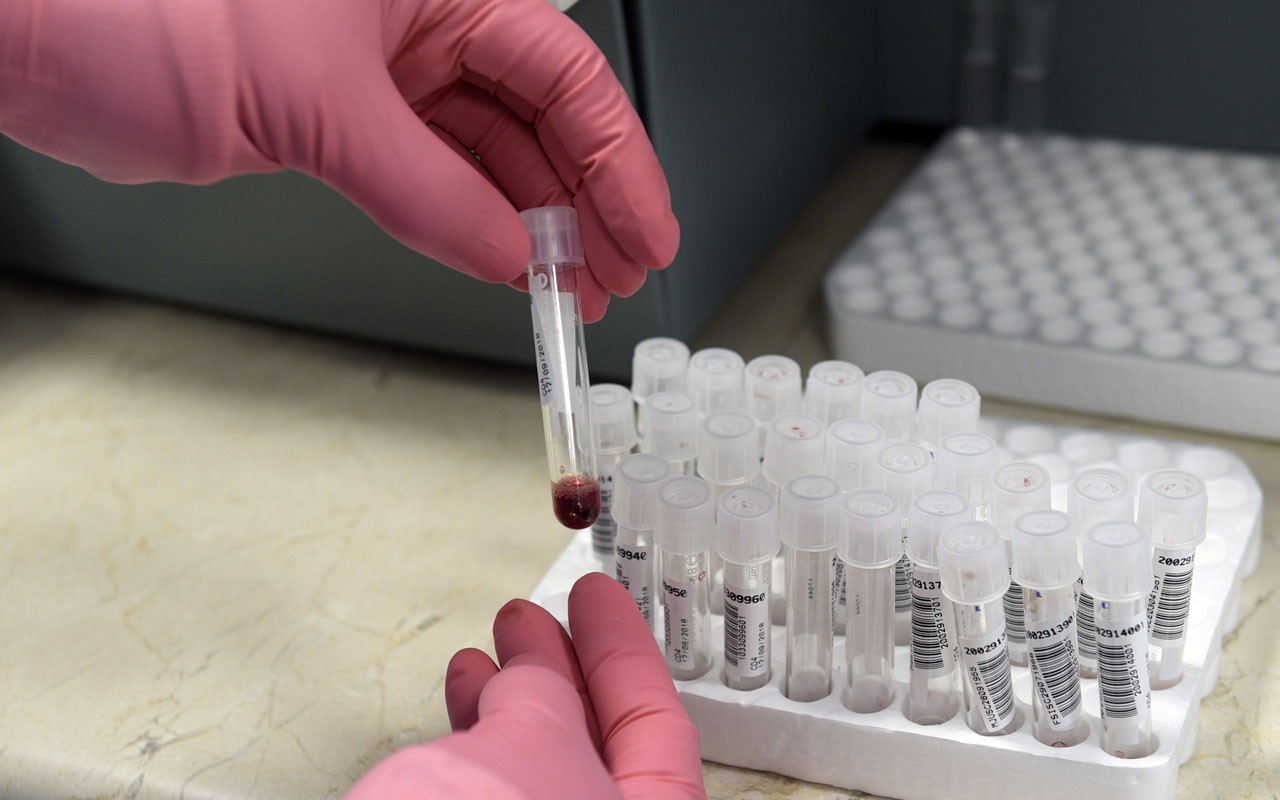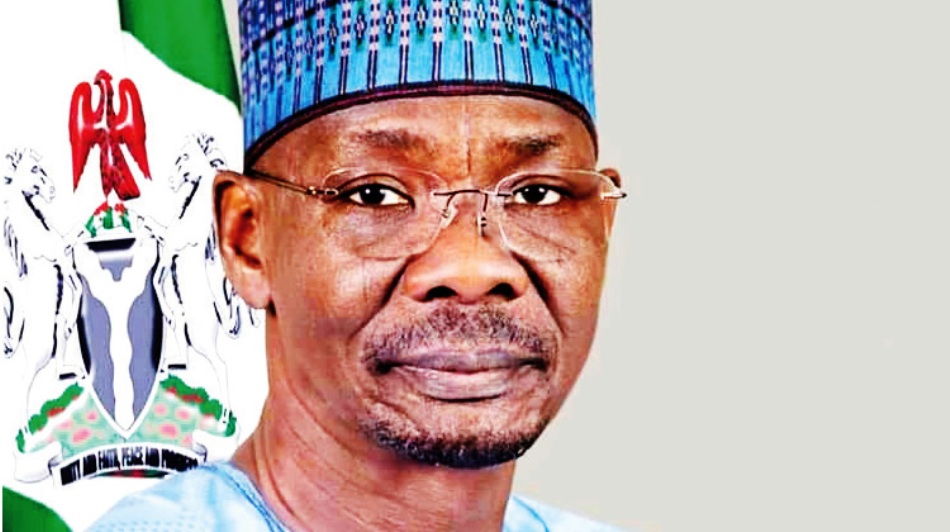The Director General, National Agency for the Control of AIDS (NACA), Dr. Temitope Ilori, has said that 87 per cent of people living with HIV in Nigeria know their status and 98 per cent of those who know their status are on life-saving treatment, while 95 per cent of those on treatment have achieved viral suppression and can no longer transmit HIV.
Meanwhile, Nigeria still contributes a disproportionate share of global paediatric HIV infections, underscoring the need to accelerate progress in Prevention of Mother-to-Child Transmission of HIV (PMTCT).
In addition, hard-to-reach and insecure areas remain underserved, and economic pressures continue to affect service continuity and supply chains.
Speaking at the press conference ahead of the 2025 World AIDS Day with the theme, “Overcoming Disruption: Sustaining Nigeria’s HIV Response”, Ilori observed that Nigeria remains firmly on track to end AIDS as a public health threat by 2030, adding that the country has continued to record important milestones in its HIV response.
She stated that Nigeria is also advancing local production of antiretrovirals and other HIV commodities to strengthen national self-reliance and reduce dependence on imports.
The DG noted that over the past few years, Nigeria, like the rest of the world, has faced unprecedented disruptions, a global pandemic, economic uncertainty, fluctuating donor support, and shifts in the global health financing landscape.
She stated that, despite these challenges, Nigeria’s HIV response has not faltered; it has rather adapted, innovated and endured.
Ilori assured that Nigeria has adequate anti-retroviral drugs and other commodities.
The DG stated that when global funding uncertainties threatened to disrupt essential services, the Federal Government stepped in decisively, injecting $200 million to ensure the uninterrupted delivery of HIV prevention, testing, and treatment services, as well as services for other infectious diseases.
Ilori stated that Nigeria has maintained an impressive 87–98–95 performance toward the global 95–95–95 targets, demonstrating significant progress in diagnosis, treatment coverage, and viral suppression nationwide.
She observed that the country has recorded a 46 per cent decline in new HIV infections, and more Nigerians living with HIV are enrolled and retained in care than ever before in the last decade.
The NACA boss pointed out that State-led efforts in the prevention of mother-to-child transmission have strengthened early infant diagnosis and pediatric treatment. However, these areas continue to require focused attention.
Ilori observed that the agency will intensify implementation of the PMTCT Acceleration Plan to ensure that every pregnant woman is tested, linked to care, and retained on treatment.
She said, “Our collaboration with civil society and community-led organisations has further strengthened community systems, helping to expand access to HIV testing, prevention, and treatment services, especially among key populations, adolescents, and young people. In 2024 alone, 204,201 individuals from key populations were actively receiving antiretroviral therapy, with strong viral suppression rates among those retained in care”.
Ilori noted that domestic resource mobilisation efforts are deepening, with several states increasing budget allocations and strengthening HIV Trust Funds to enhance sustainability and national ownership.
She revealed that Nigeria has also made measurable progress in integrating HIV services into broader health systems across the 36+1 States of the federation.
According to her, with the establishment of the ATM-TWG and an increased enrolment of people living with HIV into state health insurance schemes, Nigeria is improving efficiency and long-term programme sustainability.
Ilori highlighted that innovations in digital reporting tools have strengthened strategic information systems, resulting in improved data accuracy, better monitoring, and stronger accountability across the response.
She said, “Despite these gains, significant challenges remain. Stigma and discrimination continue to limit access to services for many Nigerians. Heavy reliance on external funding threatens the long-term sustainability of our achievements”.
“As we look ahead to 2026 and beyond, our focus will be on scaling up domestic financing by deepening collaboration with states, the private sector, and philanthropic organisations to operationalise HIV Trust Funds and strengthen political commitment. Prevention efforts for key and vulnerable populations will be expanded, including wider access to PrEP and differentiated service delivery models tailored to the needs of adolescents, young people, and key populations”.
“We will continue to strengthen multisectoral coordination as ending AIDS requires contributions from education, youth, gender, labour, and social protection sectors. Our commitment to tackling stigma, discrimination, and human rights violations remains resolute, as we work to create safe and inclusive workplace environments”, she added.
Ilori called for collective action to deepen domestic ownership and ensure that every individual, especially the most vulnerable, can access life-saving HIV services with dignity.
Also speaking, Community Support Adviser for the Joint United Nations Programme on HIV/AIDS (UNAIDS ), in Nigeria, Gabriel Undelikwo, said that the world is facing challenges occasioned by funding cuts, which affect the key component of the HIV response, adding that goal shift in HIV programmes has been initiated.
Undelikwo stated that achieving the SDG target of ending AIDS by 2030 requires transformative approaches that mitigate risk, sustain services and accelerate impact, adding that Nigeria is overcoming the disruption and sustaining the national response to HIV.
He emphasised the need to focus on integration, sustainability and mobilisation of domestic resources to bridge the financing gap.
He said, The country’s priorities are clear: to sustain prevention and treatment, remove barriers and empower communities to lead. We want to use this opportunity to commend the leadership of the country under President Tinubu, and indeed the leadership of NACA, for demonstrating a commitment to transforming the sector, strengthening national assistance, securing local financing, and ensuring access to treatment, while sustaining national programs. While Nigeria is taking significant steps towards long-term sustainability, UNAIDS will continue to support the government and people of Nigeria for an inclusive, sustainable, and community-led HIV response”.
On his part, President of the Network of People living with HIV/AIDS in Nigeria (NEPWHAN), Mr Abdulkadir Ibrahim, commended President Tinubu for approving N200 billion in the 2025 appropriation to tackle HIV, TB and Malaria, adding that the move is the first step of overcoming disruption.
“We, the recipients of care, appreciate the political will the government has demonstrated, in the entire Africa, Nigeria is being referenced as a country to emulate by other countries”, he said.
Ibrahim highlighted the need to continue the procurement of HIV commodities and put people on treatment, focusing on demand creation to ensure stability of viral load testing.






